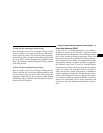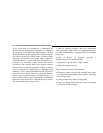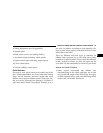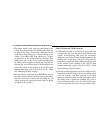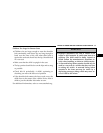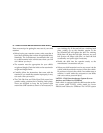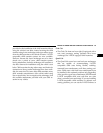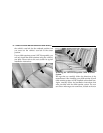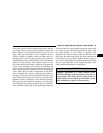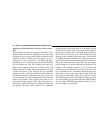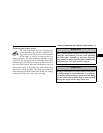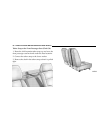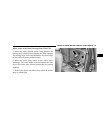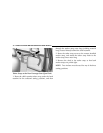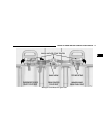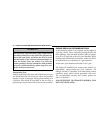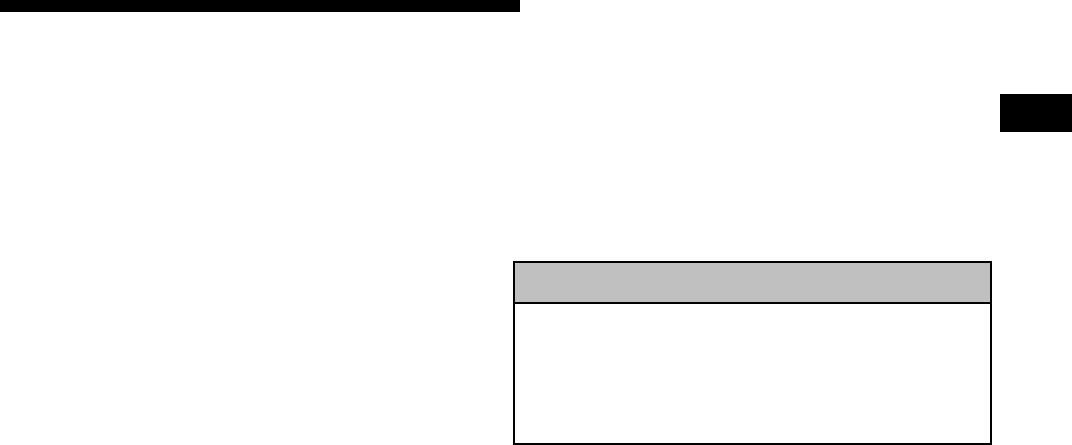
of the seat cushion where it meets the seat back, and are
just visible when you lean into the vehicle to install the
child restraint. You will easily feel them if you run your
finger along the intersection of the seatback and seat
cushion surfaces. In addition, there are tether strap an-
chorages each LATCH seating position (see section on
Child Restraint Tether Anchor). Many, but not all restraint
systems will be equipped with separate straps on each
side, with each having a hook or connector for attachment
to the lower anchorage and a means of adjusting the
tension in the strap. Forward-facing toddler restraints and
some rear-facing infant restraints will also be equipped
with a tether strap, a hook for attachment to the tether
strap anchorage and a means of adjusting the tension of
the strap. You will first loosen the adjusters on the lower
straps and on the tether strap so that you can more easily
attach the hooks or connectors to the vehicle anchorages.
Next attach the lower hooks or connectors over the top of
the anchorage bars, pushing aside the seat cover material.
Then attach the tether strap to the anchorage located on
the back of the seat, being careful to route the tether strap
to provide the most direct path between the anchor and
the child restraint. If your vehicle is equipped with
adjustable rear head restraints, raise the head restraint
and, route the tether strap under the head restraint and
between the two posts. Finally, tighten all three straps as
you push the child restraint rearward and downward into
the seat, removing slack in the straps according to the
child restraint manufacturer’s instructions.
WARNING!
Improper installation of a child restraint to the
LATCH anchorages can lead to failure of an infant or
child restraint. The child could be badly injured or
killed. Follow the manufacturer’s directions exactly
when installing an infant or child restraint.
THINGS TO KNOW BEFORE STARTING YOUR VEHICLE 65
2



